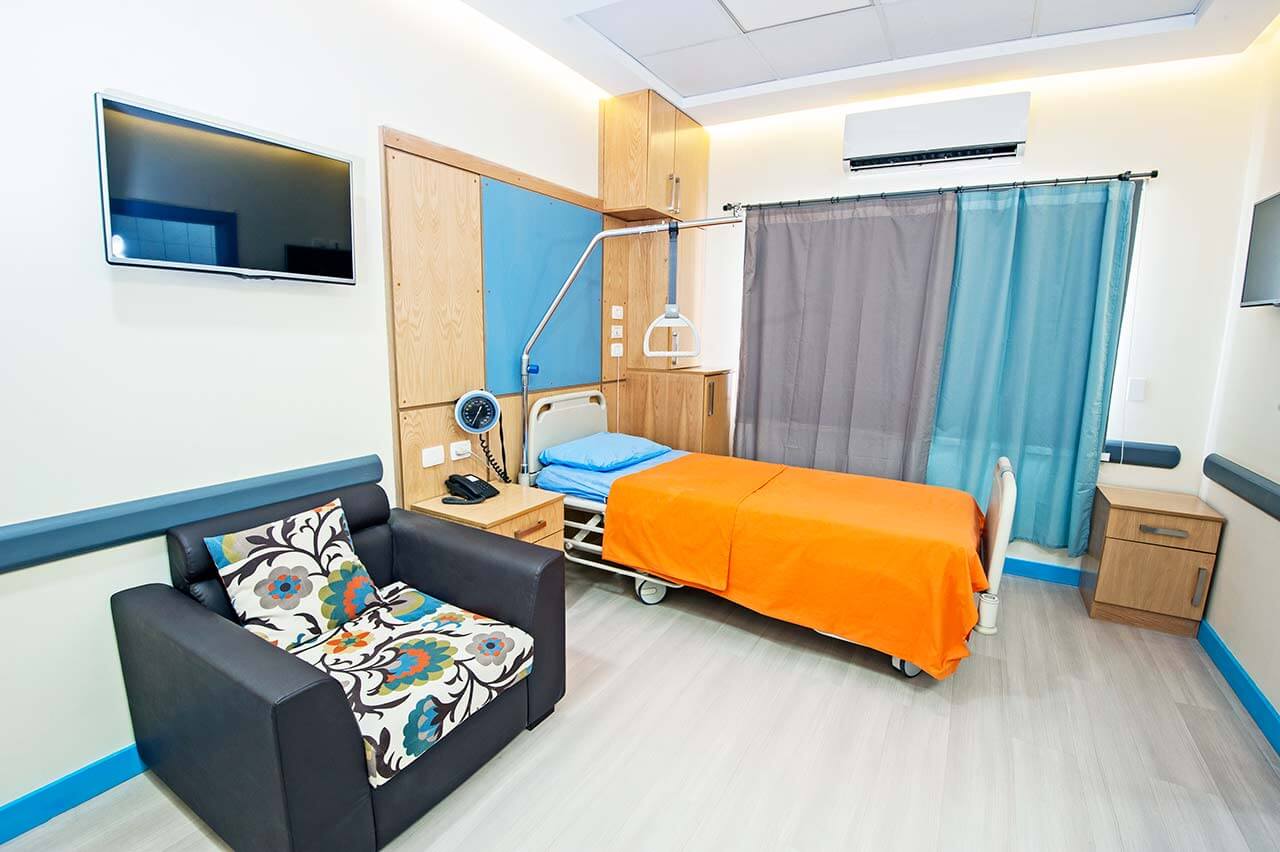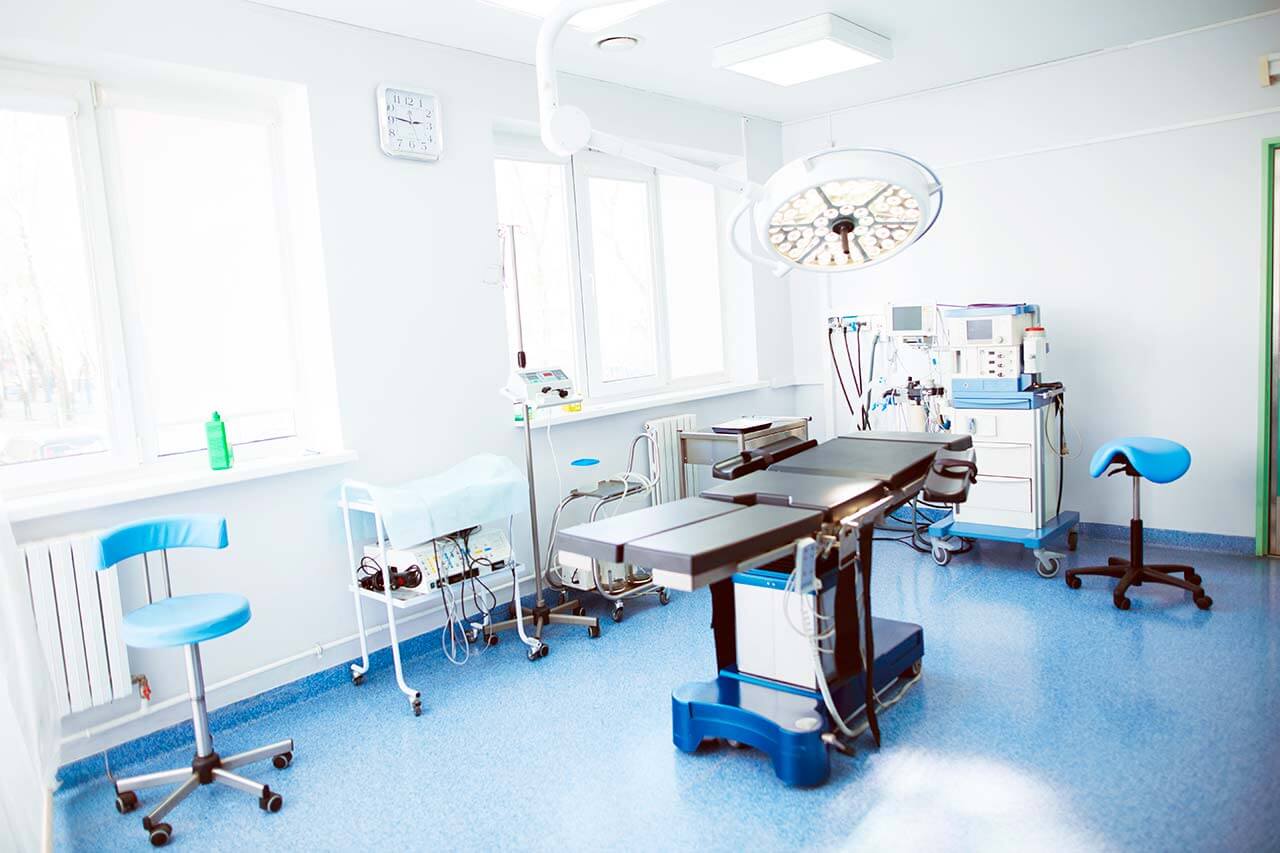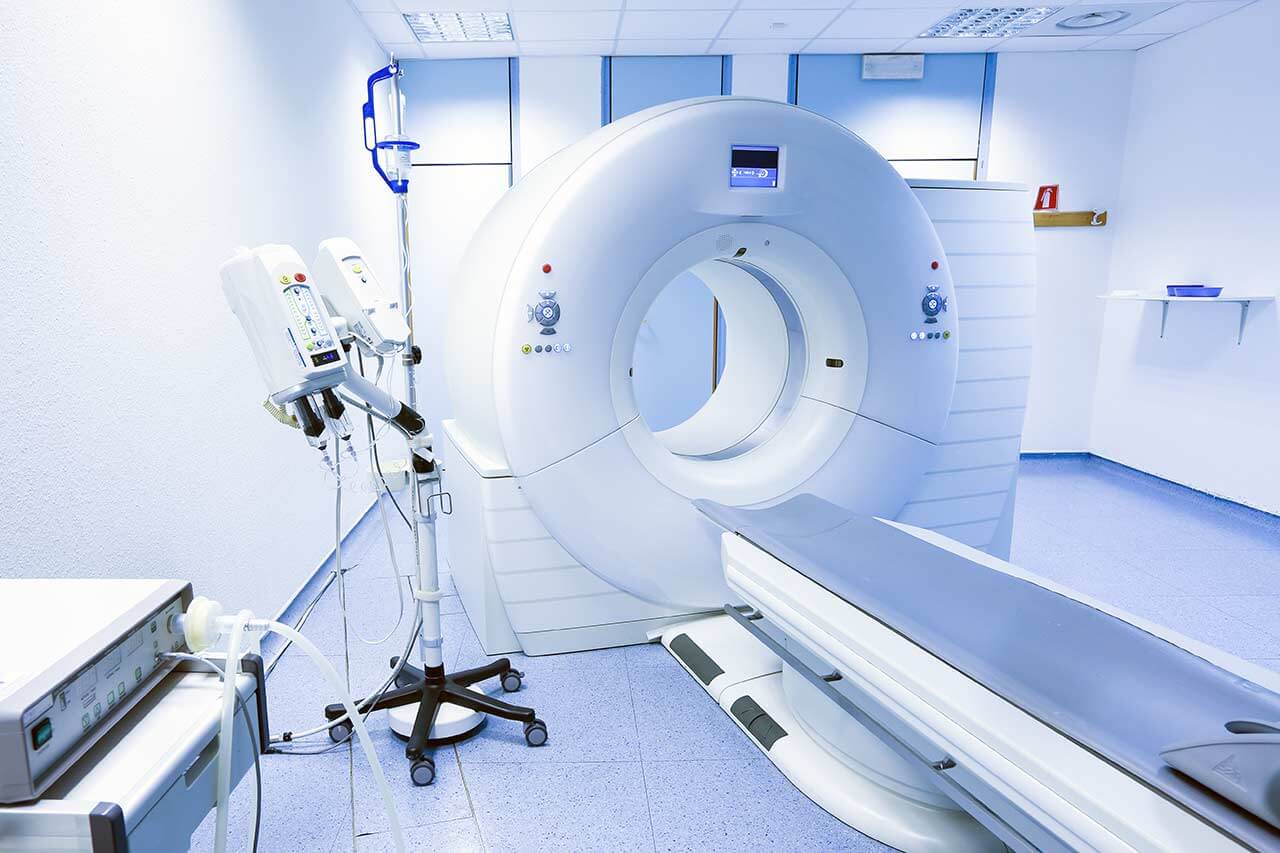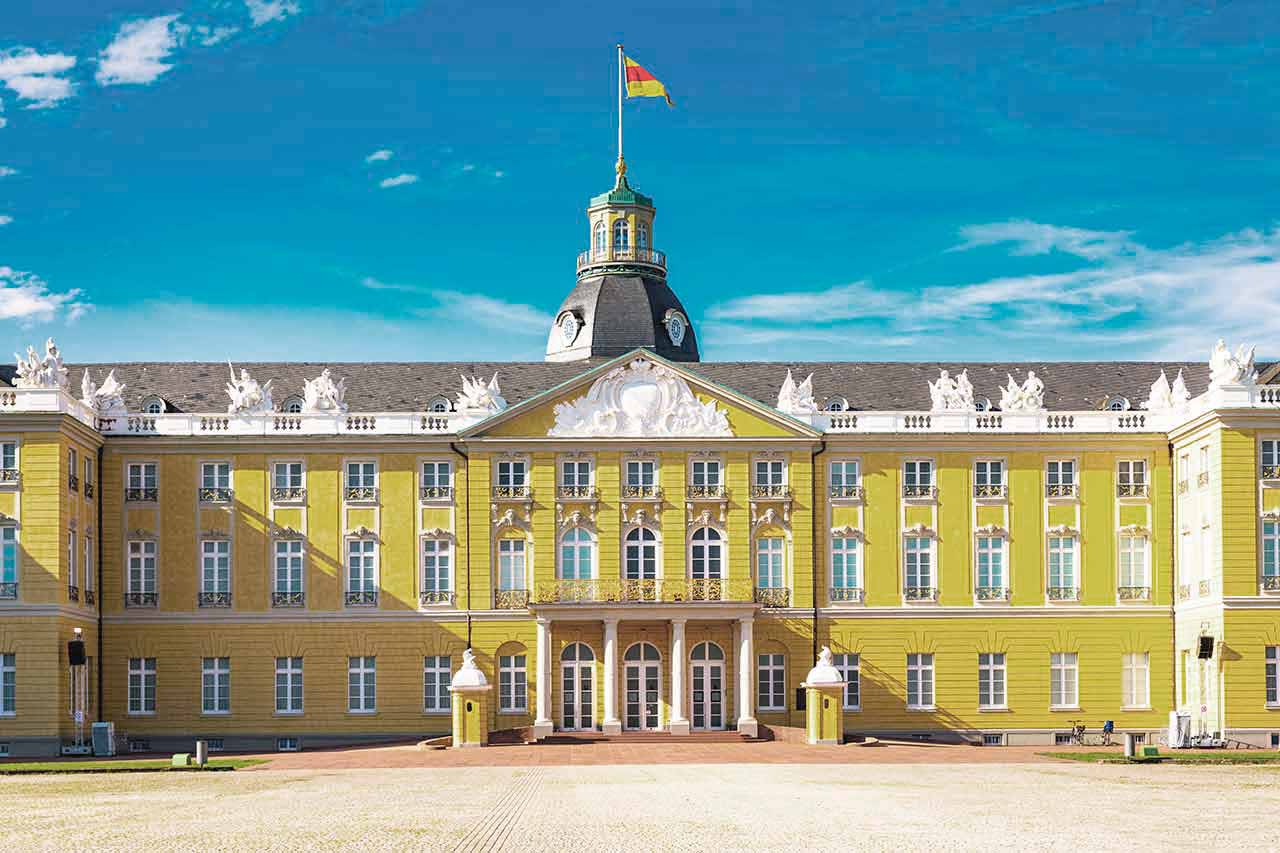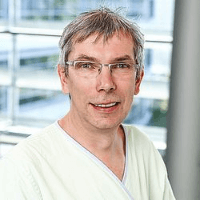
The program includes:
- Initial presentation in the clinic
- clinical history taking
- physical examination
- laboratory tests:
- complete blood count
- general urine analysis
- biochemical analysis of blood
- TSH-basal, fT3, fT4
- tumor markers
- indicators of inflammation
- indicators blood coagulation
- CT / MRI / Ultrasaund of head and neck
- hormonal therapy
- symptomatic treatment
- control examinations
- cost of essential medicines and materials
- nursing services
- nursing services
- services of all leading experts
- explanation of individual treatment plan
Required documents
- Medical records
- MRI/CT scan (if available)
Service
You may also book:
 BookingHealth Price from:
BookingHealth Price from:
About the department
The Department of Pediatric Oncology and Hematology at the Municipal Hospital Karlsruhe provides the full range of medical services in these medical fields. The department specializes in high-precision diagnostics and optimal treatment of solid malignant tumors, benign and malignant diseases of the hematopoietic system. The department has been operating since 1970, therefore it has vast experience and unique developments that allow the specialists to effectively deal with cancer in children of various age groups – between the ages of 0 and 18. The department is one of the most successful and largest medical facilities of this kind in Germany. The specialists of the medical facility work in accordance with the current clinical protocols and guidelines of the German Society of Pediatric Oncology and Hematology (GPOH). Medical care is provided on both an inpatient and outpatient basis. Pediatric oncologists carry out drug therapy and chemotherapy, while radiation therapy and surgical treatment are performed by the doctors from the hospital's highly specialized departments. The Head Physician of the department is Dr. med. Alfred Leipold.
The department's specialists deal with the treatment of all malignant pathologies, including sarcomas, medulloblastomas, astrocytomas, ependymomas, malignant tumors of the kidneys, liver, thyroid gland, etc. The treatment is based on an integrated approach. The health of the young patients is in the safe hands of not only oncologists, hematologists and specially trained nursing staff, but also social workers, psychologists, physiotherapists, art therapists, music therapists, and teachers.
The responsibilities of pediatric oncologists of the medical facility include chemotherapy, immunotherapy and other modern types of drug therapy for cancer. If a child needs a surgical removal of a neoplasm, irradiation or a bone marrow transplant, the experienced specialists in these medical fields are then engaged in the therapeutic process. In some cases, naturopathic methods can also be used to maintain the proper health condition of the young patients and improve their quality of life.
The doctors spend enough time communicating with children and their parents, talking in detail about the features of the upcoming treatment and its expected results. It goes without saying that the main goal of the physicians is to achieve a complete cancer cure for a young patient. In addition to the correct treatment tactics, the patient's psychological mood also plays an important role in the fight against oncology, so the department has all the necessary conditions for the child to distract from the exhausting treatment process and get some positive emotions. For example, the department holds a clown show once a week, which helps the doctors to set the children in a positive mood for treatment.
Hematology is an integral part of the department's clinical practice as well. The doctors specializing in this medical field regularly admit patients with benign and malignant diseases of the hematopoietic system. The most common are leukemia, lymphoma, anemia, thalassemia, thrombocytopenia and other pathologies. The key treatment methods for hematological diseases are drug therapy, chemotherapy, and a bone marrow transplant.
The department specializes in the diagnostics and treatment of the following diseases:
- Oncology
- Brain cancer
- Neuroblastoma
- Medulloblastoma
- Astrocytoma
- Ependymoma
- Eye cancer: retinoblastoma
- Sarcoma: Ewing's sarcoma, osteosarcoma, and soft tissue sarcoma
- Thyroid cancer
- Kidney cancer
- Liver cancer
- Laryngeal cancer
- Malignant tumors of the ovaries and testicles in children
- Rare malignant tumors
- Brain cancer
- Hematology
- Malignant diseases
- Leukemia
- Hodgkin's lymphoma
- Non-Hodgkin's lymphoma
- Benign diseases
- Anemia: Fanconi anemia, aplastic anemia, hereditary and acquired anemia
- Thalassemia
- Hemoglobinopathies
- Polycythemia
- Idiopathic thrombocytopenic purpura
- Amegakaryocytic thrombocytopenia
- Malignant diseases
- Other oncological and hematological diseases
The department's diagnostic and therapeutic range of services includes:
- Diagnostics
- Laboratory tests, including myelography (assessment of the cellular composition of the bone marrow)
- Lumbar puncture
- Biopsy
- X-ray scanning
- Ultrasound scanning
- Computed tomography
- Magnetic resonance imaging
- Scintigraphy (isotope scanning)
- Therapy
- Drug therapy
- Chemotherapy
- Immunotherapy
- Surgical tumor removal (in cooperation with the specialized surgeons)
- Radiation therapy (in collaboration with radiation therapists)
- Bone marrow transplant (in cooperation with the specialized physicians)
- Other diagnostic and treatment methods
Photo of the doctor: (c) Städtische Klinikum Karlsruhe
About hospital
The Municipal Hospital Karlsruhe is a modern maximum care medical facility, which combines a long tradition and the advanced achievements of modern medicine. The hospital operates on the basis of the University of Freiburg, so scientific innovations in the field of diagnostics and treatment are continuously introduced into practice here. The hospital presents almost all areas of modern medicine, including many medical services for young patients.
A highly qualified and experienced team of more than 4,500 employees provides impeccable medical care. The medical facility has 1,571 beds for the hospitalization of its patients. The hospital admits more than 63,000 inpatients and about 186,000 outpatients annually. A large number of patients wishing to receive medical care in the hospital speak for themselves and are a confirmation of the exceptional service, as well as the effectiveness of the treatment provided.
The quality management system of the hospital's medical care is certified in accordance with the DIN EN ISO 9001 standards. Since 2016, the hospital has implemented a regular quality control in compliance with the strict standards of the Initiative Quality Medicine (IQM). In addition, almost all departments of the hospital have numerous certificates in their areas of specialization, including certificates from the German Cancer Society (DKG), the German Society for General and Visceral Surgery (DGAV), the German Cardiac Society (DGK), the German Diabetes Society (DDG), the German Society of Nephrology (DGN), the German Trauma Society (DGU), etc.
The main value of the hospital's staff is the health and satisfaction of their patients, so a respect and a humane attitude towards each patient remain priorities. The doctors and nursing staff support each patient in every possible way on their path to recovery. The specialists also strive to perform the most sparing, but at the same time the most effective and safe treatment.
Photo: (с) depositphotos
Accommodation in hospital
Patients rooms
The patients of the Municipal Hospital Karlsruhe live in cozy patient rooms with everything necessary for a comfortable stay. Standard patient room furnishing includes an automatically adjustable bed, a bedside table, a TV, and a telephone. The patient rooms have Wi-Fi. Each patient room also has an ensuite bathroom with a shower and a toilet.
The patient rooms in the pediatric departments are specially designed for children, so that young patients feel at home. Children can live in their patient room with one of their parents. There are also special playrooms designed for children.
Meals and Menus
The patients of the hospital are offered tasty and varied three meals a day: breakfast, lunch and dinner. The menu also features dietary meals. The kitchen staff will gladly accept all the individual wishes of patients.
The hospital also has a cozy cafe where one can have a tasty snack, drink tea, coffee and soft drinks.
Further details
Standard rooms include:
Religion
The hospital has two chapels that regularly host Protestant, Catholic, and Ecumenical worship services. A patient can watch the broadcast of the worship on TV channels in his own room, if desired.
Accompanying person
Your accompanying person may stay with you in your patient room or at the hotel of your choice during the inpatient program.
Hotel
You may stay at the hotel of your choice during the outpatient program. Our managers will support you for selecting the best option.
